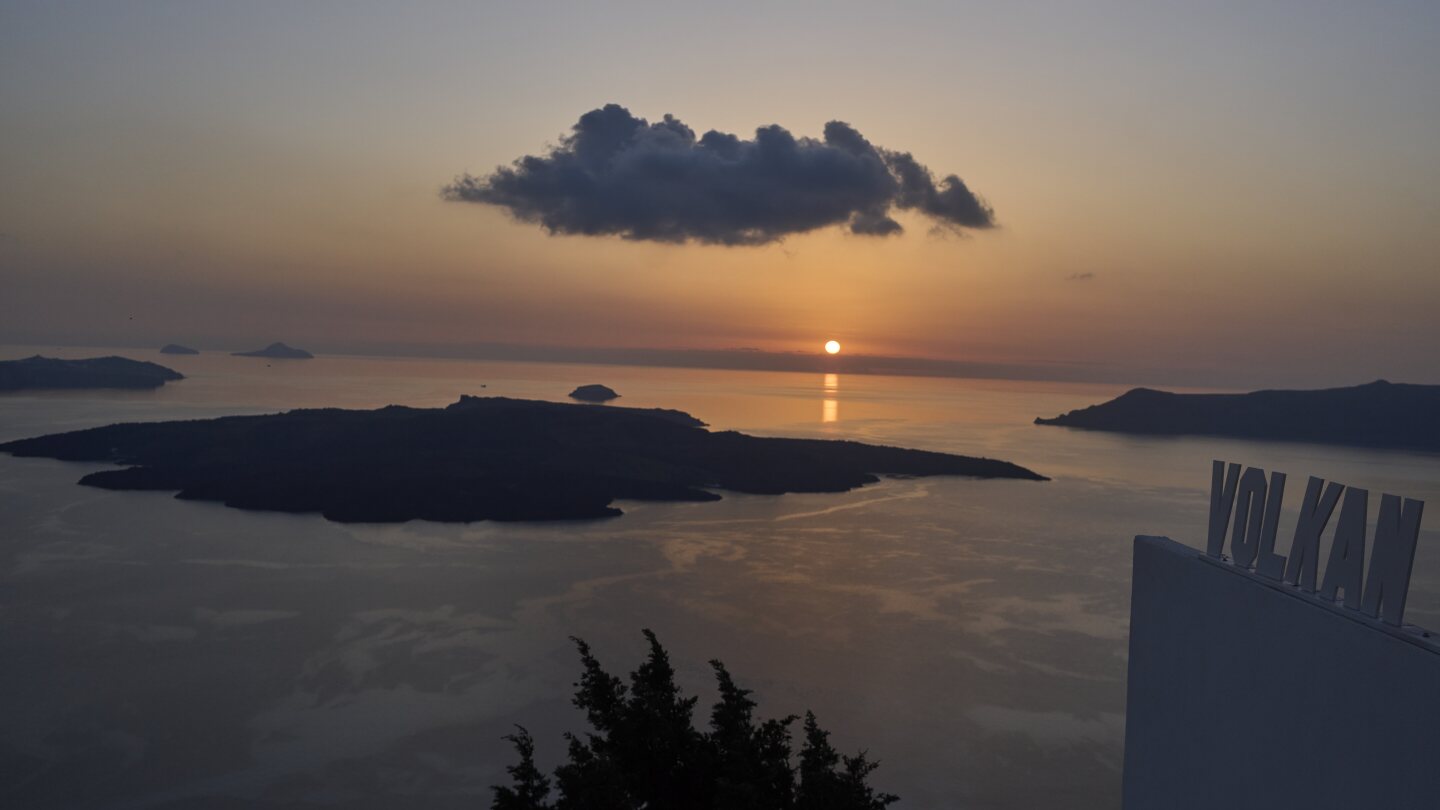Santorini Earthquake Activity And Volcanic Risk: A Current Assessment

Discover more detailed and exciting information on our website. Click the link below to start your adventure: Visit Best Website. Don't miss out!
Table of Contents
Santorini Earthquake Activity and Volcanic Risk: A Current Assessment
Santorini, the breathtaking Greek island famed for its whitewashed villages clinging to volcanic cliffs and stunning sunsets, sits atop a restless geological giant. Its iconic caldera, a testament to a massive Minoan eruption thousands of years ago, continues to exhibit seismic activity, raising concerns about potential volcanic risk. This article provides a current assessment of Santorini's earthquake activity and the associated volcanic hazards.
Recent Seismic Events and Their Significance:
Santorini experiences frequent, albeit mostly minor, earthquakes. These tremors are a direct result of the ongoing magmatic processes beneath the island. The Hellenic Arc, a seismically active zone where the African and Eurasian tectonic plates collide, is largely responsible for this activity. While most earthquakes go unnoticed by tourists, monitoring stations constantly track these events, providing valuable data for assessing volcanic risk. [Link to a reputable seismological institute tracking Greek seismic activity]. Significant increases in frequency or magnitude could indicate a build-up of pressure within the volcanic system, warranting increased vigilance.
The Volcanic Threat: Understanding the Risks:
The eruption of Thera (the ancient name for Santorini) around 1600 BC was one of the largest volcanic events in recorded history. The resulting tsunami devastated Minoan civilization, and the impact reverberated across the Mediterranean. While another eruption of that magnitude is considered unlikely in the near future, the volcano remains active, and smaller eruptions are a possibility. Scientists continually monitor various indicators, including:
- Ground deformation: Changes in the shape of the island, measured using GPS and satellite data, can reveal magma movement beneath the surface.
- Gas emissions: Increased release of volcanic gases, such as sulfur dioxide, can be a precursor to eruptive activity.
- Seismic activity: As mentioned earlier, a significant increase in the frequency and intensity of earthquakes can signal impending volcanic unrest.
Current Volcanic Monitoring Efforts:
The National Observatory of Athens, along with international collaborations, maintains a robust monitoring network on Santorini. This network utilizes a variety of sophisticated instruments to detect subtle changes in the volcanic system. This constant surveillance allows scientists to better understand the volcano's behavior and provide timely warnings in case of increased volcanic activity. [Link to the National Observatory of Athens website].
What Does This Mean for Tourists and Residents?
The risk of a major eruption on Santorini is considered low, but not negligible. The island's authorities and scientific community work diligently to minimize potential hazards. For tourists, this means enjoying the stunning beauty of Santorini while being aware of the island's geological context. Regular updates on volcanic activity are readily available through official channels. Residents, on the other hand, participate in regular emergency drills and are well-informed about evacuation procedures.
Conclusion: A Balanced Perspective
Santorini's volcanic history is a crucial part of its identity. While the potential for future eruptions exists, the island is far from being uninhabitable. The ongoing monitoring efforts provide a crucial safety net, allowing for timely warnings and preparedness. By understanding the risks and staying informed, both tourists and residents can enjoy the unique beauty of this remarkable island while remaining aware of its geological dynamism. Staying informed through official channels is key to responsible and safe enjoyment of this stunning destination. [Link to relevant Greek government tourism safety information].

Thank you for visiting our website wich cover about Santorini Earthquake Activity And Volcanic Risk: A Current Assessment. We hope the information provided has been useful to you. Feel free to contact us if you have any questions or need further assistance. See you next time and dont miss to bookmark.
Featured Posts
-
Virtus Bologna Partizan Belgrado Gli Eroi Serbi Conquistano Segafredo Arena
Feb 06, 2025
-
China Retaliates Against Trump Tariffs With 15 Duty On Coal And Lng
Feb 06, 2025
-
Rfk Jr S Hhs Secretary Bid A Major Hurdle Cleared
Feb 06, 2025
-
Trumps Tariffs Did The Paper Tiger Roar Or Whimper
Feb 06, 2025
-
Ronaldos Public Endorsement A Top Players Journey And Inspiration
Feb 06, 2025
